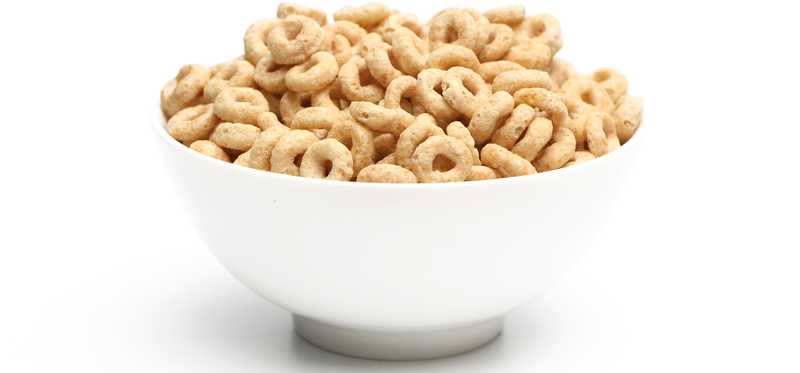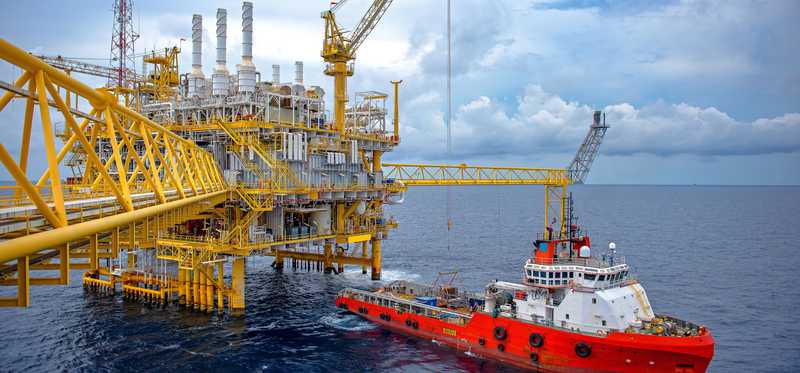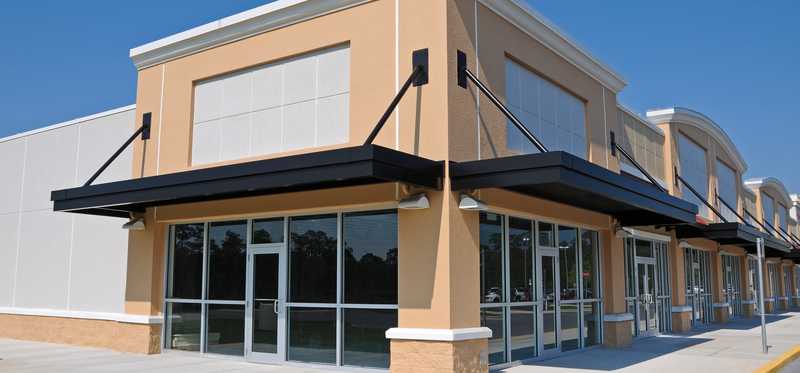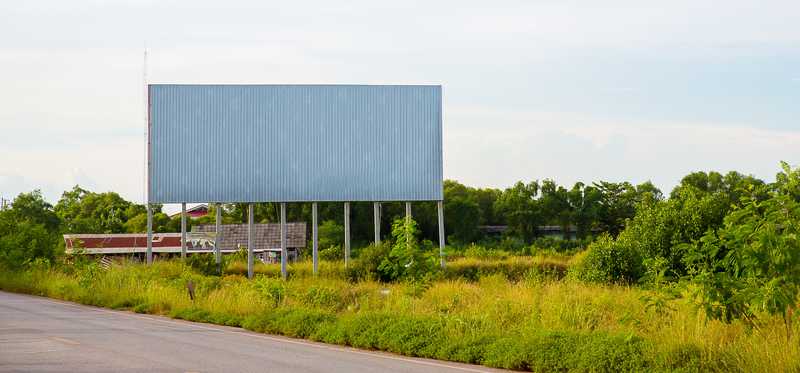20 Stocks That Pay You to Own Them

20 Stocks That Pay You to Own Them
But beware the yield traps
Owning dividend-paying stocks can be one of the most rewarding forms of investing. Not only do you get directly rewarded with cash for the financial risks you take by investing, but that cash gets paid based on the underlying health of the business, not the immediate whims of the market. That gives you a chance to take home cash even when the market is slumping -- and potentially even use that cash to buy more shares while they're cheap.
Still, not every dividend-paying stock is worth owning. Some of the ones with the highest apparent dividends per dollar invested are in fact yield traps -- companies whose dividends are unsustainable and at serious risk of being cut. With that in mind, the best dividend companies are those that cover their dividend from their operations and look capable of continuing to pay -- or potentially even raise -- those payments. Here are 20 stocks that pay you to own them and that look like they just might fit that bill.
Previous
Next

1. AT&T (NYSE: T)
AT&T, the former telecom monopoly that was so powerful it had to be broken apart, now operates both in the media and telecom spaces. It owns Warner Media and satellite television provider DirecTV in addition to its well-known telecommunications network.
AT&T currently offers shareholders a yield of around 5.5%. While that yield consumes just over 90% of the company's earnings, the company's operating cash flows are generally far higher than its accounting earnings. That means its dividend is better covered than it initially appears. It recently increased its dividend by a penny to $0.52 per share per quarter.
ALSO READ: Forget AT&T -- Enbridge Is a Better Dividend Stock
Previous
Next

2. Omega Healthcare Investors (NYSE: OHI)
As America's population continues to age, more people will likely reach the point where they need help with their daily lives. When that need for help exceeds a person's family's ability to provide that help, many people find their ways to assisted living or nursing homes. Omega Healthcare Investors is a Real Estate Investment Trust (REIT) that helps finance those senior care facilities, which positions it well for dealing with that demographic shift.
Omega Healthcare Investors sports a yield of around 6.2%. While that yield is higher than its reported net earnings, the company did recently increase its dividend by a penny to $0.67 per share per quarter. That resumed the streak of increases it had paused while working through some challenges from a tenant that went through bankruptcy. While that tenant bankruptcy showcases that the short term may not be simple, the company remains well positioned to thrive as those long-run demographics take hold.
Previous
Next

3. Kinder Morgan (NYSE: KMI)
One of the largest energy infrastructure companies on the North American continent, Kinder Morgan is in the business of moving oil, natural gas, and related compounds around. In doing so, it plays a vital role in powering our economy since those energy sources are often in demand far from where they're extracted and processed.
Part of the beauty of the industry is that it's often tough to get new capacity approved, making it challenging for new competitors to enter, and raising the value of existing pipelines. That means that Kinder Morgan's existing pipeline capacity acts as a moat that helps keep it competitive vs. other ways of transporting energy around.
Kinder Morgan currently offers investors a yield of around 4.7%, and it has indicated that it plans to boost its dividend by 25% later this calendar year. The company's dividend is well covered by its operating cash flows, though its earnings are kept down by the large depreciation it faces due to the capital intensive nature of the business. As a result, its payout ratio as a percentage of earnings is around 100%.
Previous
Next

4. Simon Property Group (NYSE: SPG)
The death of malls has been predicted for quite some time. While some of the weaker retailers and mall operators are legitimately suffering, the smarter and better capitalized mall operators have figured out ways to adapt their operations to continue to thrive. Simon Property Group is chief among the operators that are investing to adapt their spaces for the future -- and thus it looks well positioned to navigate that changing landscape.
Investors today get a yield of around 5.6%, and while that yield does consume more than 100% of the company's accounting earnings, the payment is covered by its operating cash flows. Simon has raised its dividend twice in the past four quarterly payments, though it does often go a bit longer than that between increases.
Previous
Next

5. General Mills (NYSE: GIS)
The company behind breakfast favorites like Cheerios, Wheaties, and Chex, and natural food brands like Annie's and Cascadian Farm, General Mills finds its way into many people's homes. While packaged foods companies in general may be challenged to keep up with changing consumer tastes, General Mills has done a great job of adapting its offerings to meet the current market demand.
That adaptability to the market's changing tastes has allowed General Mills to pay its dividend for 120 uninterrupted years. The company currently pays out $0.49 per share per quarter, which gives it a yield of around 3.6%. With a payout ratio around 56% of earnings, that dividend is adequately covered, giving the company some room to consider increasing its dividend again as its business grows over time.
Previous
Next

6. ExxonMobil (NYSE: XOM)
One of the world's largest energy providers, ExxonMobil is in the business of finding oil, refining it into gasoline and other petrochemicals, and marketing it to consumers and businesses. ExxonMobil is very committed to its dividend. It's so committed, in fact, that it surrendered its coveted AAA debt rating back in 2016 in part so that it could keep its overall capital plans -- including its dividend -- intact.
ExxonMobil's investors currently receive a yield around 5%. That yield does consume nearly 100% of the company's accounting earnings, but the company typically does produce far more cash from its operations, making that dividend adequately covered. Of course, the company does have to continue investing in exploration in order to sustain the production needed to maintain that dividend. Fortunately for potential shareholders, those investments show no sign of stopping anytime soon.
Previous
Next

7. Duke Energy (NYSE: DUK)
One of the largest electric generation companies in the United States, Duke Energy services around 7.7 million electric and 1.6 million natural gas customers on the East Coast and in the Midwest. As a utility company, Duke Energy has a fairly large, and at least somewhat captive, customer base built into its service area. That helps buffer it against competition, helping it keep its cash flow strong.
Duke Energy currently offers its shareholders a yield around 4.1%. That payment requires around 78% of the company's earnings, which is reasonable given the company's position as a utility. It has a decent history of increasing that dividend, which means there's a good chance it will continue to do so as long as its earnings growth continues to support those increases.
Previous
Next

8. Carnival Corporation (NYSE: CCL)(NYSE: CUK)
The largest cruise line in the world, Carnival Corporation is a leading company in that segment of the travel and recreation industry. As the largest player, it has a level of scale unmatched by any of its competitors, which should help it weather economic challenges. That's important, as cruising is a voluntary leisure activity that people only do when they feel comfortable enough to invest the time and money on a trip.
Carnival has two different tickers, CUK and CCL. CUK is an American Depository Receipt of the company's British listed shares, while CCL is the company's American listed ones. The company indicates both classes of shares have the same economic and voting interest. American investors face no automatic dividend withholding tax for most companies based in the United Kingdom, which means that Americans can look to buy whichever class looks cheaper.
The CUK shares currently offer a 4.1% yield while the CCL ones offer 3.9%, even though each set of shares pay the same $0.50 per share per quarter. In addition to the cash dividend, shareholders that own at least 100 shares can get an onboard credit of up to $250 when they sail on Carnival cruises. The dividend consumes about 46% of the company's earnings, which means it may have room to raise that dividend over time as its earnings grow.
Previous
Next

9. Broadcom (NASDAQ: AVGO)
A semiconductor company that focuses on communications services, Broadcom touches many of the technologies that underpin our daily life. As a result of its criticality in our modern world, analysts expect Broadcom to grow its earnings at around a 13% annualized clip over the next five years. That's a decent clip, and when paired with a dividend yield around 4.2%, suggests a potential for shareholders to see a solid total return over time.
Broadcom's dividend does consume more than 100% of the company's reported earnings, but it is covered by its operating cash flows. In addition, Broadcom recently raised its dividend by nearly 23%, which is something no rational company would do if it expected its near term future to be troubled.
Previous
Next

10. Realty Income (NYSE: O)
Realty Income markets itself as “the monthly dividend company.” It is a REIT that structures its dividend such that investors get a small payment every month. Not only does that dividend get paid monthly, but the company often increases its payment multiple times within the year.
In exchange for that regular payment and pretty regular growth, investors do have to deal with the fact that each payment is fairly small. The company's annualized dividend rate is currently $2.79, which makes each monthly payment around $0.2325. When compared to a recent price around $76.35 per share, that's a monthly yield around 0.3%. While that does work out to an annualized dividend yield around 3.6%, each payment isn't all that much.
Previous
Next

11. Cedar Fair (NYSE: FUN)
Cedar Fair runs around a dozen amusement parks throughout the United States -- and one in Ontario, Canada. The company is structured as a partnership, which means investors are directly responsible for paying the taxes on the company's earnings. It also makes holding the company's stock inside an IRA somewhat problematic, as that structure could lead the IRA itself to face taxes. Still, that structure leads Cedar Fair to pay its shareholders generous dividends.
Investors today get a yield around 6.8%, which does exceed the company's accounting earnings. That cash distribution is covered by the company's operating cash flows, however, and that generous payment helps compensate for the tax burden that the company's partners pay.
Previous
Next

12. Extended Stay America (NASDAQ: STAY)
A hotel company that markets itself as the world's most popular extended stay hotel, Extended Stay America offers hotel suites geared towards people who will be staying put for a longer term. For instance, its suites have kitchens and its hotels have laundry facilities, making it potentially less expensive for guests over time vs. having to pay for all meals and professional clothing cleaning.
As a hotel, Extended Stay America is sensitive to the strength of the overall economy. Still, it currently offers investors a yield around 6.4%, which is covered by its operating cash flow. The company has been ticking its dividend up annually for the past several years, and as long as the economy remains reasonably solid, it should have room to continue that trend.
Previous
Next

13. PetMed Express (NASDAQ: PETS)
While dividends may not be your first thought when it comes to internet retailers, PetMed Express is a welcome exception to that general trend. A leading online pet pharmacy -- indeed, the company bills itself as America's largest -- PetMed Express shows that it is possible to lead in online retail while directly rewarding shareholders with cash.
PetMed Express currently offers investors a yield around 4%, and the dividend represents around 85% of the company's earnings. Analysts are expecting the company to be able to grow its earnings by around 7% annualized over the next five years. That gives reason to believe the company can resume boosting its dividend if that growth materializes.
Previous
Next

14. Las Vegas Sands (NYSE: LVS)
Casinos make money because they offer gamblers the potential of quick wealth while assuring that overall and over time, the odds are stacked in the casino's favor. While there is some worry that the growth of online and state-sanctioned gambling will reduce the draw of traditional casinos, the reality is that existing operators are well-positioned to lead the expansion. On that front, Las Vegas Sands boasts its global footprint and experience building and operating at scale among its key features.
Today's investors in Las Vegas Sands receive a dividend yield around 4.1%. While that dividend does consume more than 100% of the company's trailing earnings, it is generally covered by operating cash flows. Analysts are expecting modest growth over the next few years, so unless the company hasn't quite tilted the odds enough in its favor, that dividend should still be supportable.
Previous
Next

15. Prudential Financial (NYSE: PRU)
Prudential is so focused on its financial strength that it has been using the Rock of Gibraltar as its corporate symbol for well over a century. That’s a good focus for insurance companies like Prudential to have, as they're the types of business that need to have ready access to cash when things are going very wrong elsewhere.
Investors benefit from that strength as well. The company currently offers its shareholders a yield around 4.1%, while that dividend only consumes a bit more than 40% of the company's earnings. While the company's growth probably won't set the world on fire, investors have good reason to believe that its dividend can be maintained -- and potentially even grow over time.
Previous
Next

16. Lamar Advertising (NASDAQ: LAMR)
In an era where people are spending more of their time digital, Lamar Advertising stands out as a business focused very much on big, physical advertising. It specializes in billboards, transit ads, and airport advertising -- spots and ads that are large, visible, and nearly impossible to avoid. Unlike an internet or cell phone ad, there's no easy way to block out Larmar's advertising when you're in its vicinity, and that makes it a valuable commodity even in today's increasingly digital era.
Lamar offers investors a nearly 4.2% yield. While that yield does consume a bit more than 100% of the company's accounting earnings, its operating cash flow covers the cost of the payment. As a REIT, Lamar Advertising needs to pay at least 90% of its earnings in the form of dividends, so its payment will always consume a significant portion of those earnings.
Previous
Next

17. CubeSmart (NYSE: CUBE)
There's a lot to like about the self-storage business that CubeSmart competes in. In particular, once people put their stuff in storage, they tend to keep it there for longer than they initially anticipate. That leads to reliable, predictable, and repeatable income for self-storage operators like CubeSmart. Even then, CubeSmart isn't resting on its laurels, investing in becoming a service provider for other self-storage businesses to take advantage of overall growth in the industry.
As CubeSmart also operates as a REIT, it too must pay a significant portion of its earnings as a dividend. Its yield currently sits at nearly 4.2%, and it recently bumped its dividend by a penny per share per quarter. That gives investors a pretty decent income thanks to customers that just keep on renting.
Previous
Next

18. Harley-Davidson (NYSE: HOG)
The quintessential American motorcycle company, Harley-Davidson is well known for its vehicles, merchandise, and very enthusiastic and engaged fan base. Still, the company has struggled recently, most notably with its LiveWire electric bike, and those struggles have left its shares near five-year lows.
The struggle with its stock price translates to a boost in its yield, giving current investors around a 4.2% yield on their money while only consuming around 58% of the company's earnings. Analysts are expecting sold earnings growth of around 8.5% annualized over the next five years, giving reason to believe that the company can continue its recent trend of increasing its payout as its earnings grow.
ALSO READ: Harley-Davidson Suspends Production and Delivery of All LiveWire Motorcycles
Previous
Next

19. American Campus Communities (NYSE: ACC)
American Campus Communities is a REIT that focuses on renting housing to college students. It's a niche where specialization matters, as college students tend to be transient -- in the area for just a few years -- and have different needs and values than typical apartment dwellers. They also tend to be tough on their dwellings, making them a community that if you're renting to, you'll want your eyes wide open and have strong contracts in place to protect your investment.
Thanks to its expertise managing that community of renters, American Campus Communities currently offers its shareholders a yield of nearly 4.1%. Its dividend is covered by its operating cash flow, and it has increased or held its dividend steady since its IPO.
Previous
Next

20. Valero (NYSE: VLO)
Valero claims to be the world's largest independent oil refiner, which gives it one big advantage over end-to-end exploration and production companies. That advantage is that as a refiner, it makes its money based on the Crack Spread -- the difference between the price of oil and the price of the gasoline and the other products that can be made from it. That allows it to profit even when oil prices are low, though it does also limit its ability to increase those profits when oil prices are high.
For investing in that niche, shareholders get a yield of around 4%. Since that dividend consumes a bit less than 65% of the company's earnings, there's room for the company to continue to increase its payment in line with its earnings over time.
Chuck Saletta owns shares of Broadcom Ltd, General Mills, Harley-Davidson, Kinder Morgan, Prudential Financial, and Valero Energy and has the following options: short January 2022 $300 puts on Broadcom Ltd, long January 2022 $300 calls on Broadcom Ltd, short March 2020 $290 puts on Broadcom Ltd, short March 2020 $310 puts on Broadcom Ltd, short March 2020 $20 puts on Kinder Morgan, short January 2022 $20 puts on Kinder Morgan, long January 2022 $20 calls on Kinder Morgan, long January 2021 $40 calls on Omega Healthcare Investors, short January 2021 $40 puts on Omega Healthcare Investors, short March 2020 $35 puts on Omega Healthcare Investors, short March 2020 $45 calls on Omega Healthcare Investors, short March 2020 $85 puts on Prudential Financial, short March 2020 $105 calls on Prudential Financial, short January 2022 $100 puts on Prudential Financial, and long January 2022 $100 calls on Prudential Financial. The Motley Fool owns shares of and recommends American Campus Communities and Kinder Morgan. The Motley Fool recommends Broadcom Ltd, Carnival, Cedar Fair, and Las Vegas Sands. The Motley Fool has a disclosure policy.
Previous
Next
Invest Smarter with The Motley Fool
Join Over Half a Million Premium Members Receiving…
- New Stock Picks Each Month
- Detailed Analysis of Companies
- Model Portfolios
- Live Streaming During Market Hours
- And Much More
READ MORE
HOW THE MOTLEY FOOL CAN HELP YOU
-
Premium Investing Guidance
Market beating stocks from our award-winning service
-
The Daily Upside Newsletter
Investment news and high-quality insights delivered straight to your inbox
-
Get Started Investing
You can do it. Successful investing in just a few steps
-
Win at Retirement
Secrets and strategies for the post-work life you want.
-
Find a Broker
Find the right brokerage account for you.
-
Listen to our Podcasts
Hear our experts take on stocks, the market, and how to invest.
Premium Investing Services
Invest better with The Motley Fool. Get stock recommendations, portfolio guidance, and more from The Motley Fool's premium services.